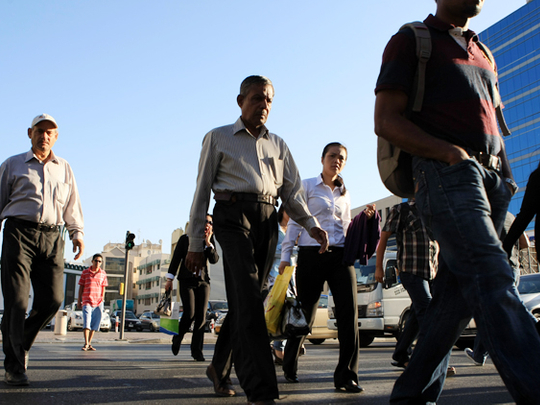
Dubai: The middle class in the Gulf countries has been hammered by the global financial crisis, according to estimates which show small investors have lost between 70 and 90 per cent of their investments in the regional stock markets.
When the stocks of some companies fell below the initial public offering (IPO) price by 80 per cent some small investors lost almost all their investments, while the losses were double for those who purchased the shares after the IPO.
The recent government measures, especially salary and wage raises, have compensated the middle class workers in government organisations, but the rest, including small investors, traders and the retired, still suffer from declines in their investment returns which comprise a large percentage of their annual income.
The ongoing oil price increases and high growth rates were expected to lead to an increase in middle class earnings, and consequently contribute positively to the stability of Gulf societies. But these expectations were dashed by the declining values of assets owned by the middle class in the Gulf.
If directing institutional investment towards foreign markets is a significant strategic approach that is aimed at diversity, the domestic institutional investment must be among the priorities of investment strategy as well. Saeed Hirsh, a London-based economist at Capital Economics, says that middle class Emirati investors were perhaps in a more difficult position when the heyday ended in that they could not simply get on a plane and never come back.
"As with any other nationality that invested speculatively, Emiratis were party to the boom. But one key difference is that, unlike expatriates, Emiratis cannot leave and have to face up to the fallout from the property crash, such as mortgage arrears, bankrupt developers, worthless properties and unfinished projects," he said.
Dr Mohammad Al Asoomi is a UAE economic expert and specialist in economic and social development in the UAE and the GCC countries.












